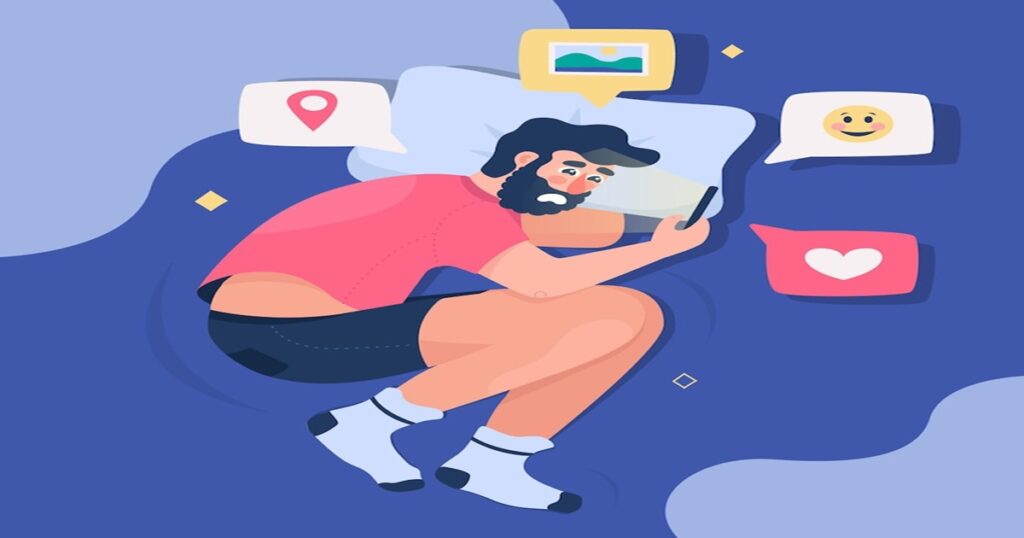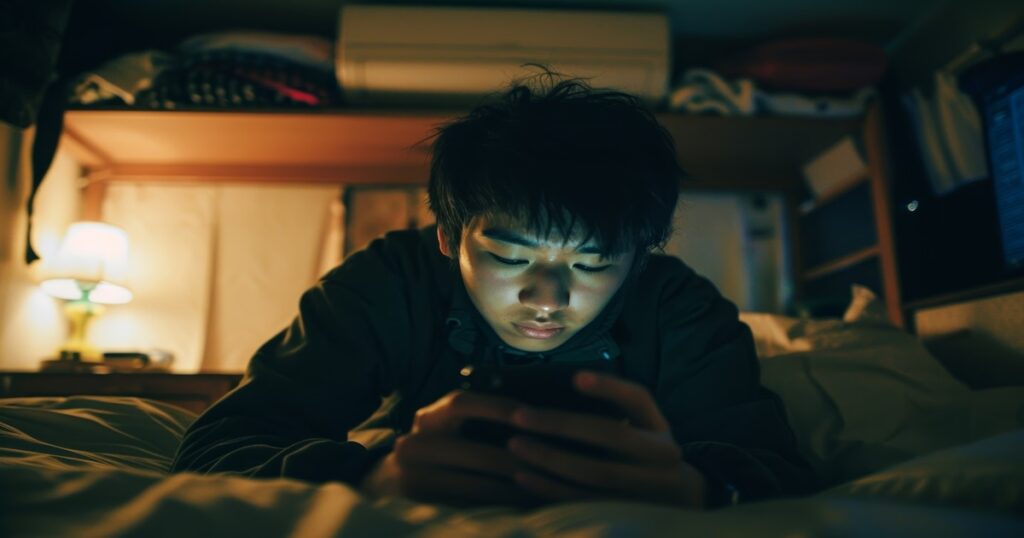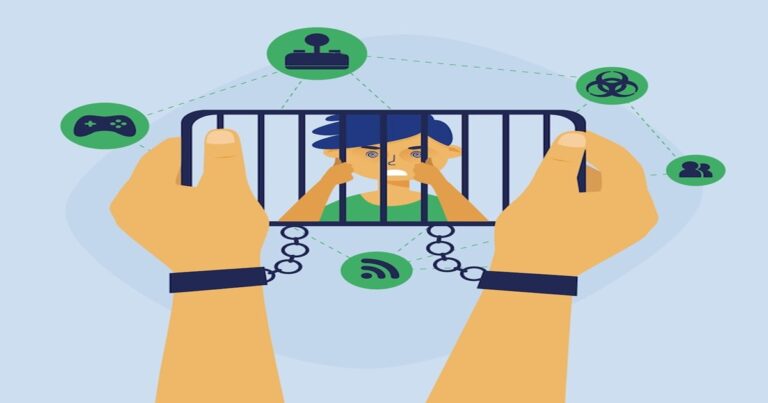What is the addiction to smartphones?
Compulsive use of smartphones, tablets, or computers can disrupt relationships, employment, and education, even if these gadgets can be incredibly useful tools. It could be time to reevaluate how much time you spend on social media or gaming compared to spending with actual people. It might also be time to stop yourself from constantly checking your emails, texts, or apps, even if doing so has detrimental effects on your life.

A problem with internet misuse or an internet addiction disorder is frequently the root cause of smartphone addiction, which is also referred to as “nomophobia” (the dread of being without a mobile phone). Ultimately, the games, applications, and virtual worlds our phones and tablets introduce are what really compel us to use them, not the devices themselves.
Smartphone and internet addiction: causes and consequences
A laptop or desktop computer may cause impulse control issues. Still, cellphones and tablets are so portable and convenient that we can use them almost anywhere and satisfy our compulsions whenever we want.
Increased loneliness and sadness -are two other ways that smartphone or internet addiction can ruin your life. It can really make you feel worse to lose yourself online despite the illusion that emotions like loneliness, melancholy, and boredom will vanish momentarily. High social media usage has been linked to anxiety and depression, according to a 2014 study. Social media users—teenagers in particular—often compare themselves negatively to their classmates, which fuels feelings of melancholy and isolation.
Creating more fear- According to one study, employees often experience more anxiety and perform worse on assigned jobs when their phones are just around. The more a person used their phone, the more anxious they felt.
Stress levels are rising-When you use your smartphone for business, you frequently bring work into your personal and family lives. You experience pressure to never switch off and to never leave work. The constant pressure to check and reply to emails can lead to increased stress and even burnout.
signs and manifestations of addiction to smartphones
Nothing about how long you spend on your phone, how often you check for updates, or how many texts you send or receive points toward an addiction or overuse issue.
Symptoms of excessive smartphone or internet use include:
Problems finishing things at home or work– Have you been too preoccupied with texting, gaming, or online chat to notice that your laundry is piled high and there isn’t much food in the house for supper? Maybe you find yourself working late more frequently than not because you are unable to finish your assignment on time.

Apart from loved ones and friends– Is spending so much time on your phone or other device that it’s negatively affecting your social life? Do you often find yourself checking your phone during a meeting or conversation with friends, missing important details? Have your loved ones voiced concerns about how much time you spend on your phone? Do you believe that no one in your “real” life, not even your husband, has the same understanding of you as your virtual pals?
Hiding how you use your smartphone– Do you sneak out to use your phone in a quiet place? Are you hiding how much time you spend on your smartphone or lying to your family and job about how much time you spend online? Do interruptions while using the internet make you feel agitated or grumpy?
Step-by-step: adjust how you use your smartphone
Most people find that controlling their use of smartphones and the internet requires more than just a complete withdrawal. It’s better to compare it to being on a diet. As essential as food is to you, you most likely still need to use your phone for the job, school, or social media. Reducing to more moderate levels of consumption should be your aim.
Prioritize when you can use your phone– You may designate specific times of day for use, or you may set aside a certain amount of time on your phone as a reward for doing a job or a homework project, for example.
At specific periods of the day– such as while you’re driving, in a meeting, at the gym, having dinner, or playing with your kids, turn off your phone. Never use your phone while using the restroom.
Never use a tablet or phone before bed– When using a screen two hours before going to bed, the blue light it emits can interfere with your sleep. Devices should be turned off and left in a different room to charge overnight. Choose a book to read at night rather than an eBook on your phone or tablet. In addition to getting a better night’s sleep, studies indicate that you’ll retain more of what you’ve read.


